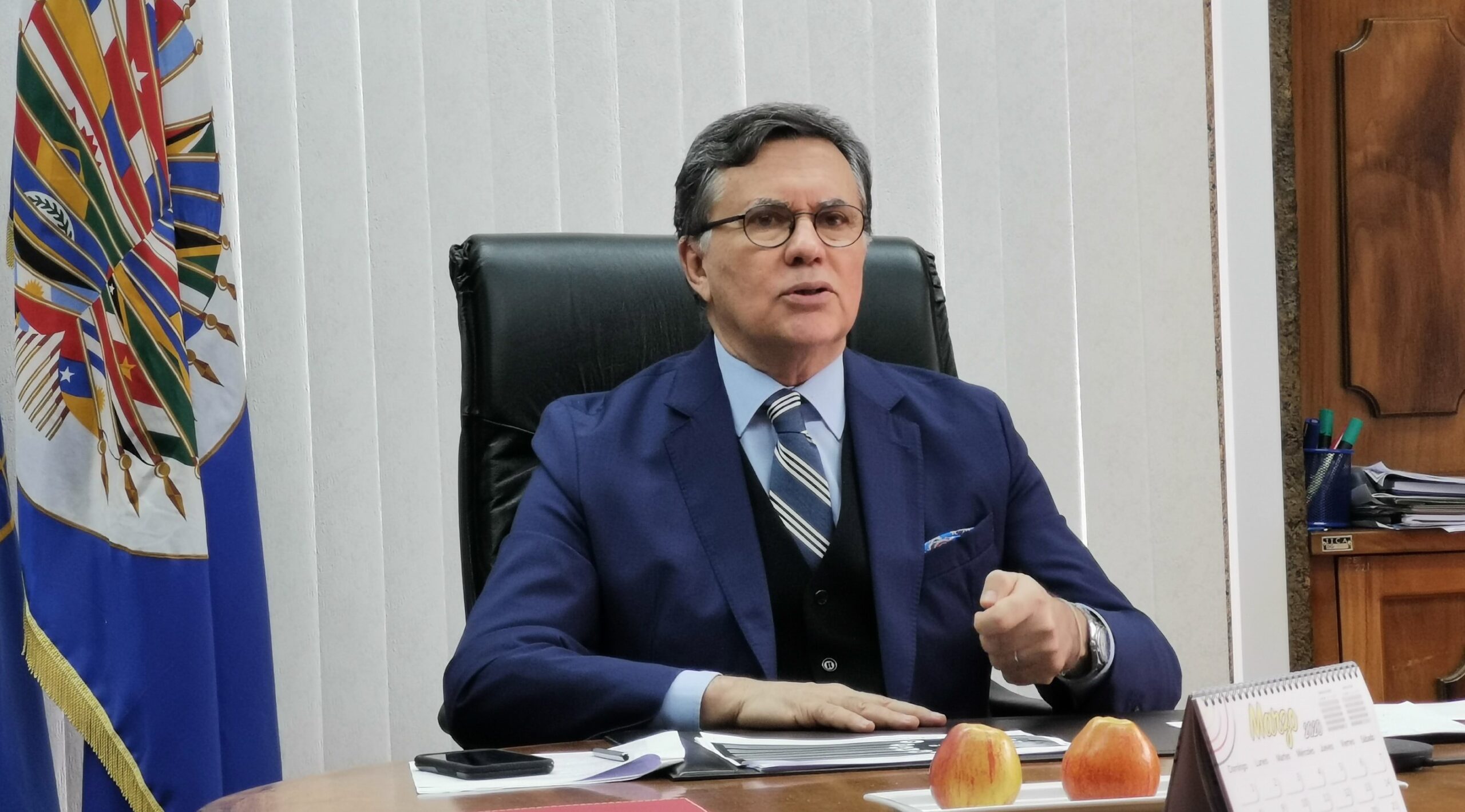The Director General of IICA calls on Panamanian businesspeople to actively participate in reviving the economy and strategically positioning Latin America and the Caribbean in the aftermath of the pandemic.

San Jose, 8 June 2020 (IICA) – The Director General of the Inter-American Institute for Cooperation on Agriculture (IICA), Manuel Otero, participated in Panama’s 2020 Annual Conference of Executives (CADE, for its acronym in Spanish), where he expressed the pressing need to recognize agriculture as an engine of growth and food security in this country and throughout Latin America and the Caribbean.
During his virtual presentation, Otero argued that, “This pandemic is the most severe economic crisis of the last 100 years. An interannual comparison of March 2019 and 2020 suggests that agrifood exports in most countries of the region have grown more than total exports of goods, demonstrating that agriculture serves as a cushion in times of crisis and recession”.
“In view of the spread of Covid-19, Latin America and the Caribbean should respond to the emergency and devise a reactivation and strategic positioning agenda. Panama has a well-established private sector that is actively looking to international markets”, he said.
The conference, which was held this year via videoconference, provides an opportunity for the Panamanian public and private sectors to engage with each other, with a view to contributing to equitable economic, social, and environmental development in the country.
Otero discussed one of the decision-making tools that could assist in this effort: IICA’s food vulnerability index. The index assesses the situations of 34 countries in the Americas, based on their capacity to ensure the food supply, ranking them from most to least vulnerable. Panama is number 22 on the list, with Haiti in first position (as the most vulnerable in the region) and the United States as number 34 (least at risk).
According to Otero, the most palpable effects in Latin American and Caribbean countries have been the “fall-off in economic activity and international trade, as well as disruptions in the performance of chains, which has impacted employment and income; inflated food prices and triggered shortages”.
IICA’s Director General explained that, “This makes the pandemic the worst recession since the Great Depression, and much worse than the Global Financial Crisis. This projection assumes that COVID-19 will be contained during the second quarter and that the virus will abate in the final six months of the year”.
The theme of the 2020 edition of the CADE business conference is “Panama at a Crossroads: from emergency to reactivation and recovery”.
It includes three regional forums—that began on June 3 and will end on July 3—as well as one national event that will run from July 20 to 24.
It is organized by the Panamanian Association of Business Executives and this is the first year that it will be hosted virtually in its entirety, featuring remote participation by presenters and rebroadcasts on social media and on ECO TV Panamá.
More information:
Gerardo Escudero, IICA Representative in Panama











